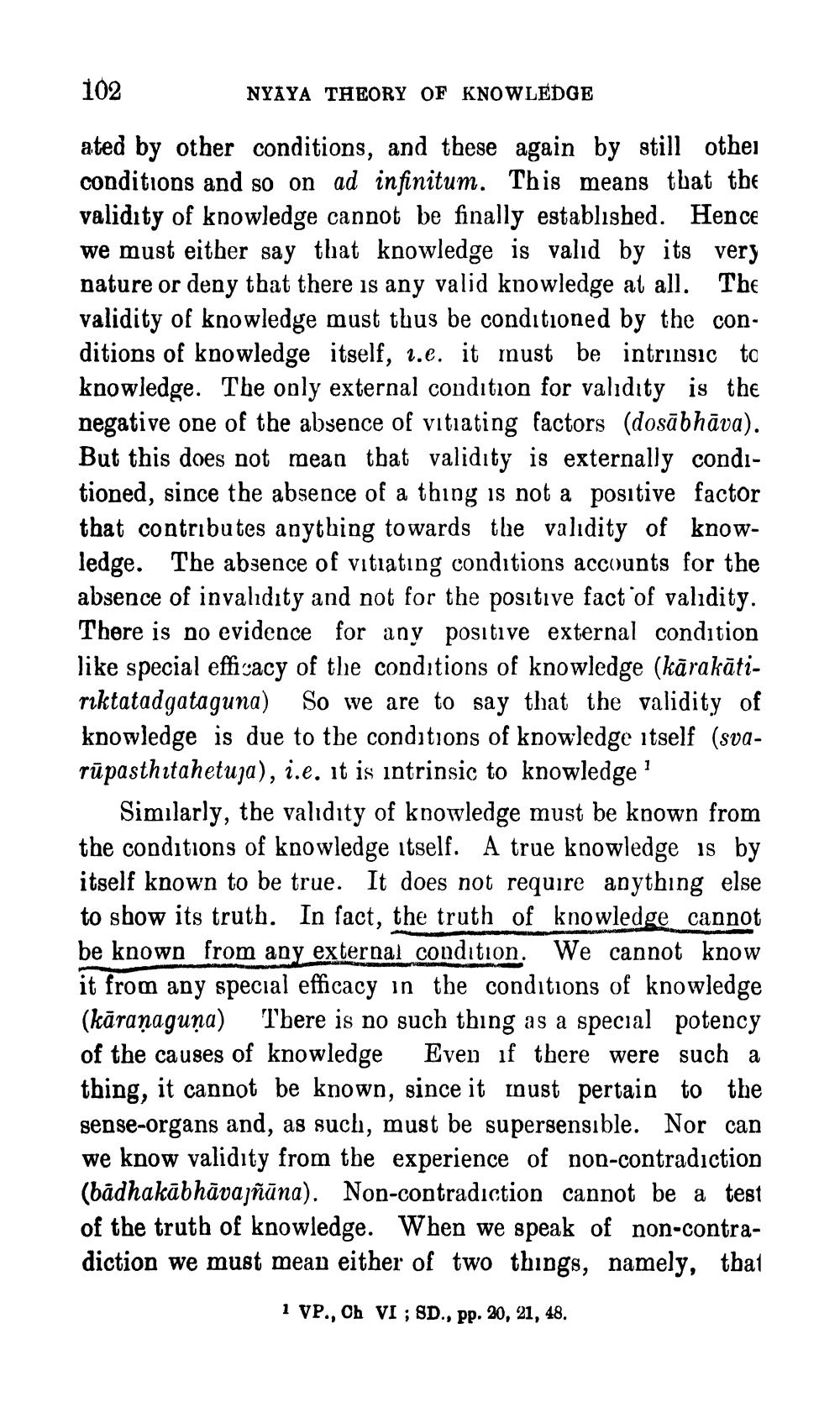________________
102
NYAYA THEORY OF KNOWLEDGE
ated by other conditions, and these again by still other conditions and so on ad infinitum. This means that the validity of knowledge cannot be finally established. Hence we must either say that knowledge is valid by its very nature or deny that there is any valid knowledge at all. The validity of knowledge must thus be conditioned by the conditions of knowledge itself, i.e. it must be intrinsic to knowledge. The only external condition for validity is the negative one of the absence of vitiating factors (dosābhāva). But this does not mean that validity is externally conditioned, since the absence of a thing is not a positive factor that contributes anything towards the validity of knowledge. The absence of vitiating conditions accounts for the absence of invalidity and not for the positive fact of validity. There is no evidence for any positive external condition like special efficacy of the conditions of knowledge (kārakātiriktatadgataguna) So we are to say that the validity of knowledge is due to the conditions of knowledge itself (svarūpasthitahetuja), i.e. it is intrinsic to knowledge
Similarly, the validity of knowledge must be known from the conditions of knowledge itself. A true knowledge is by itself known to be true. It does not require anything else to show its truth. In fact, the truth of knowledge cannot be known from any external condition. We cannot know it from any special efficacy in the conditions of knowledge (kāraṇaguņa) There is no such thing as a special potency of the causes of knowledge Even if there were such a thing, it cannot be known, since it must pertain to the sense-organs and, as such, must be supersensible. Nor can we know validity from the experience of non-contradiction (badhakābhāvajñāna). Non-contradiction cannot be a test of the truth of knowledge. When we speak of non-contradiction we must mean either of two things, namely, that
1 VP., Ch VI ; SD., pp. 20, 21, 48.




